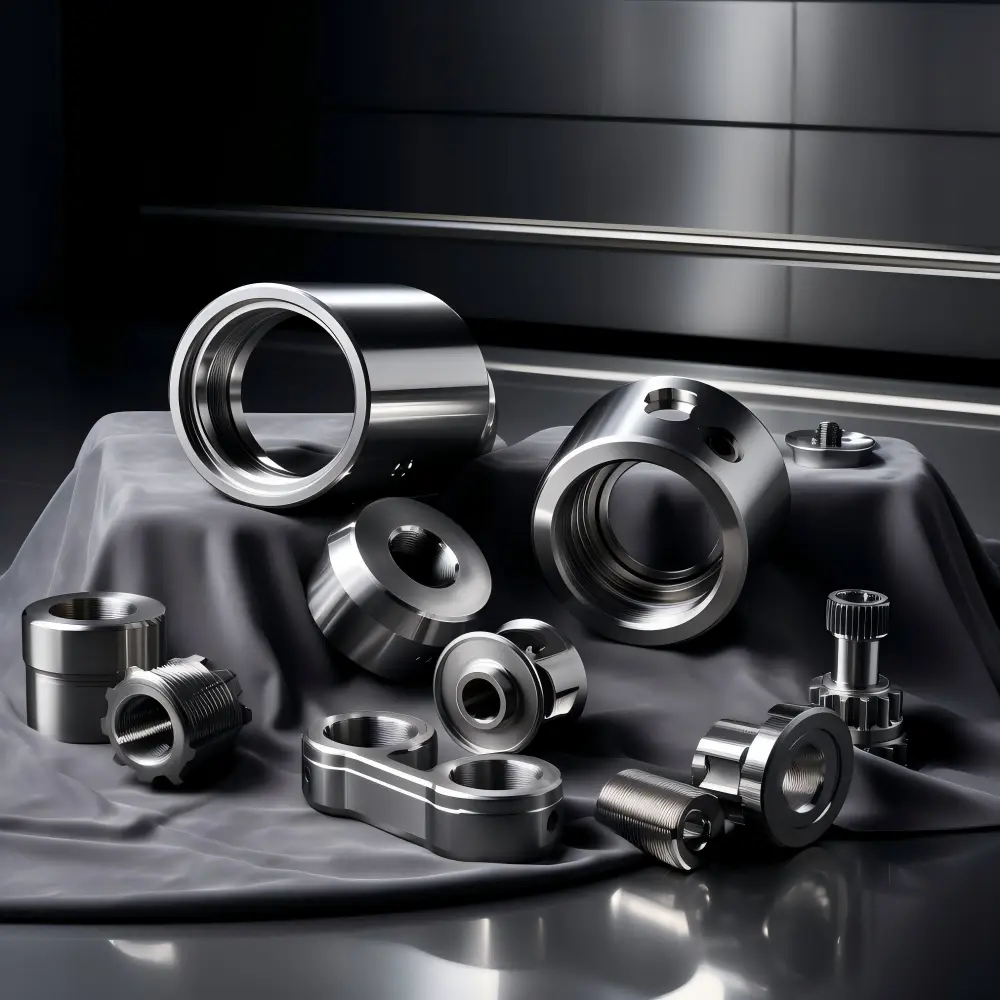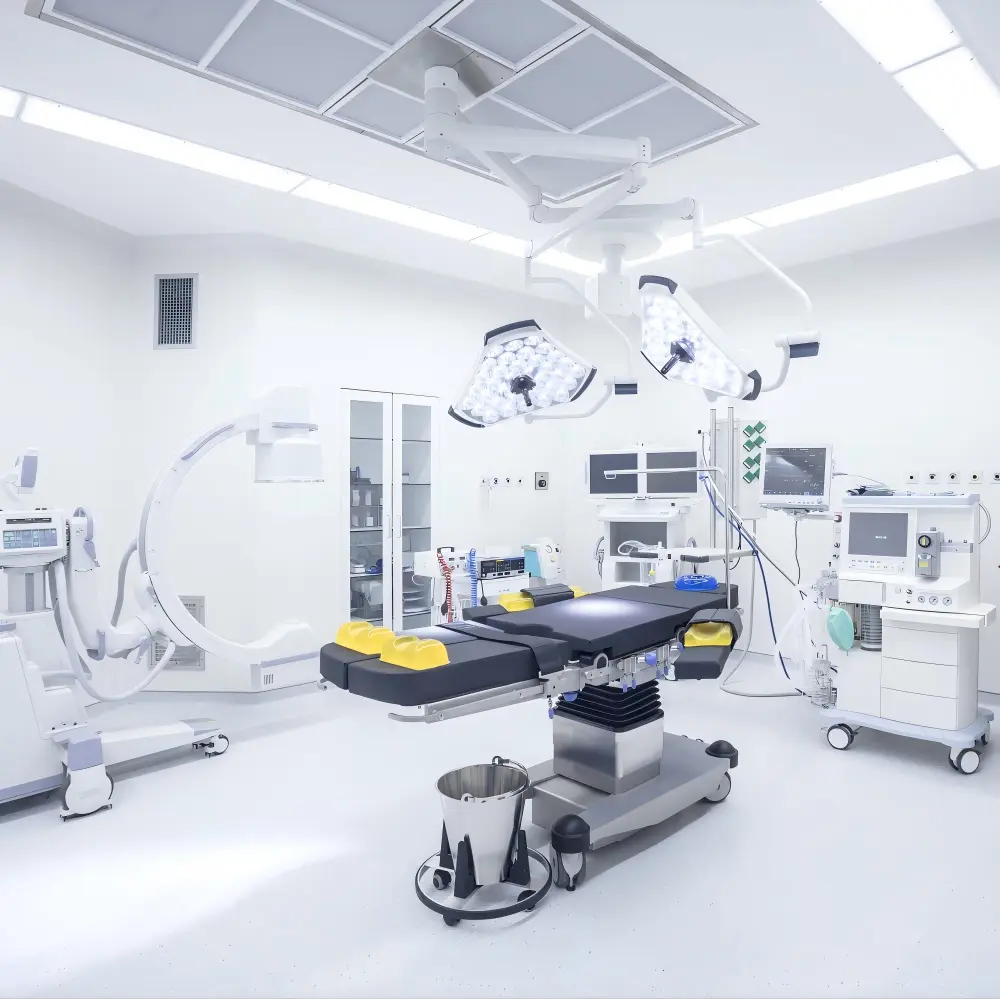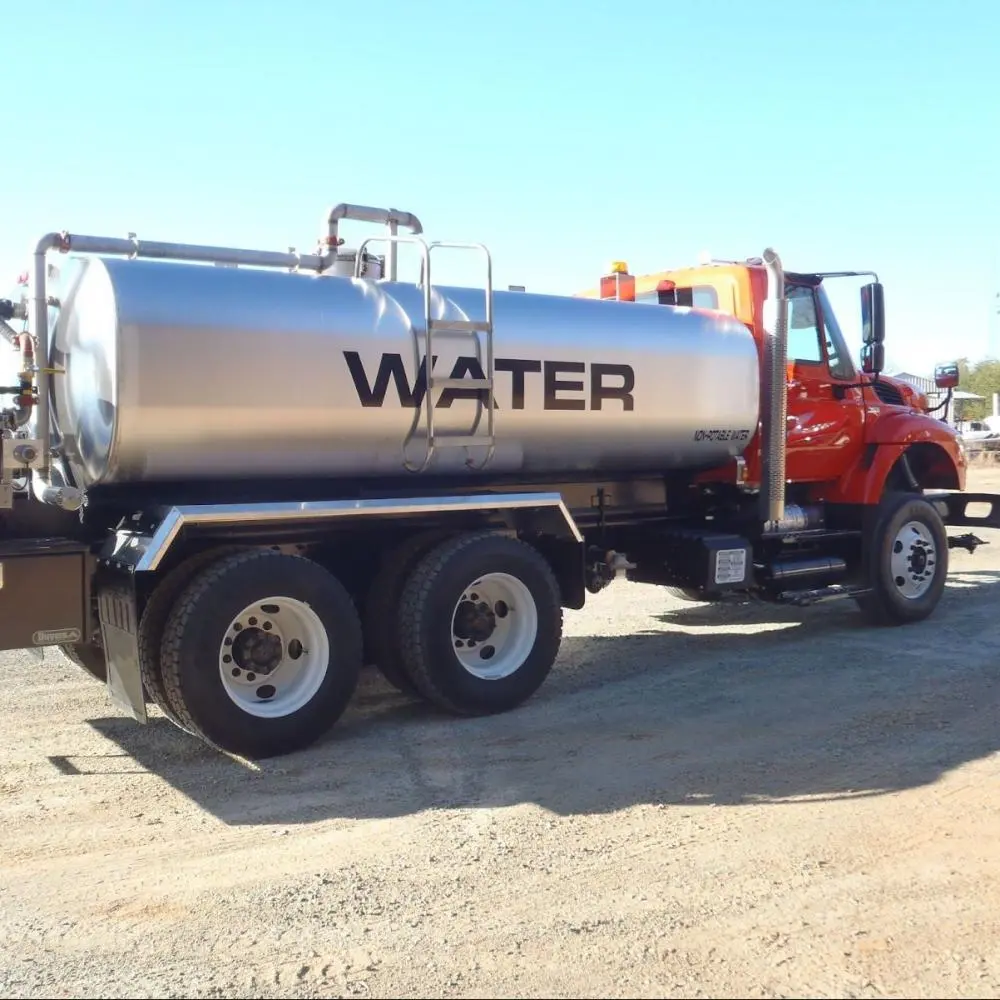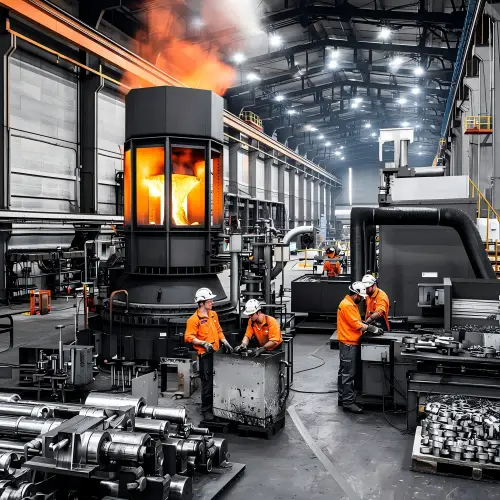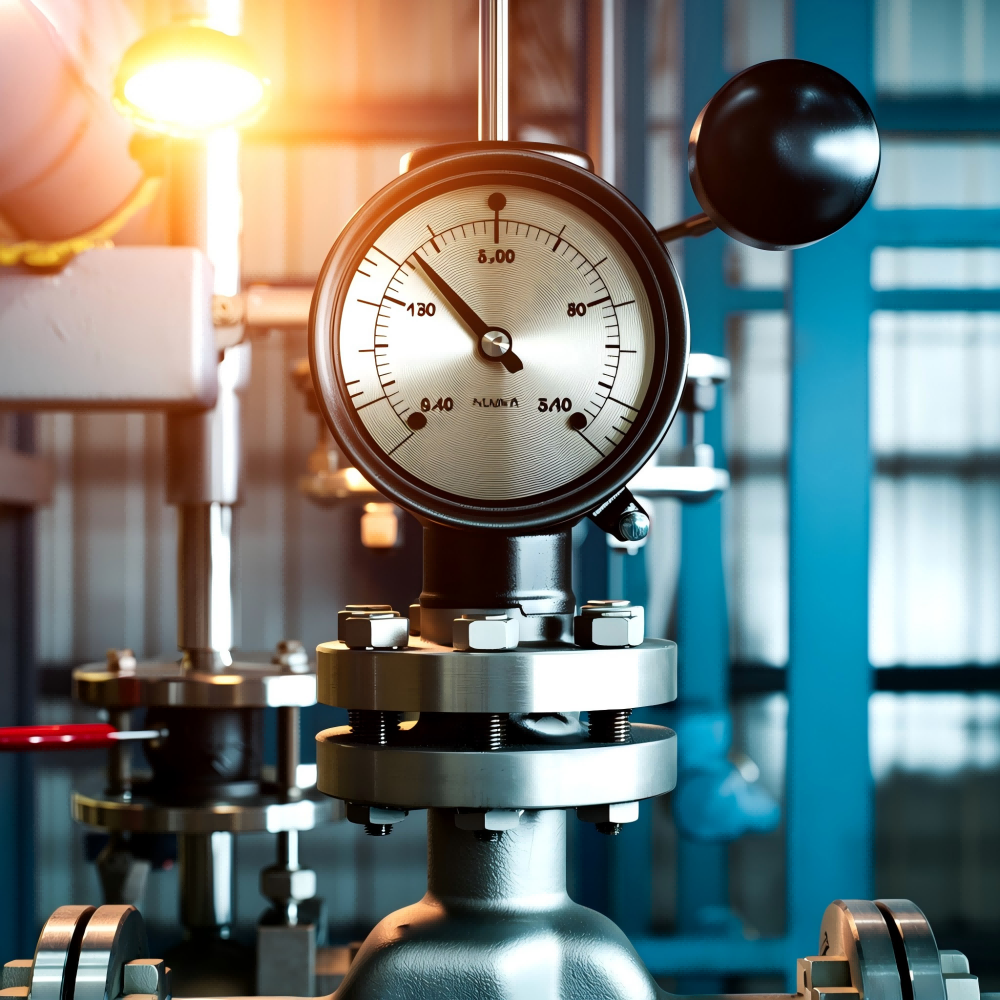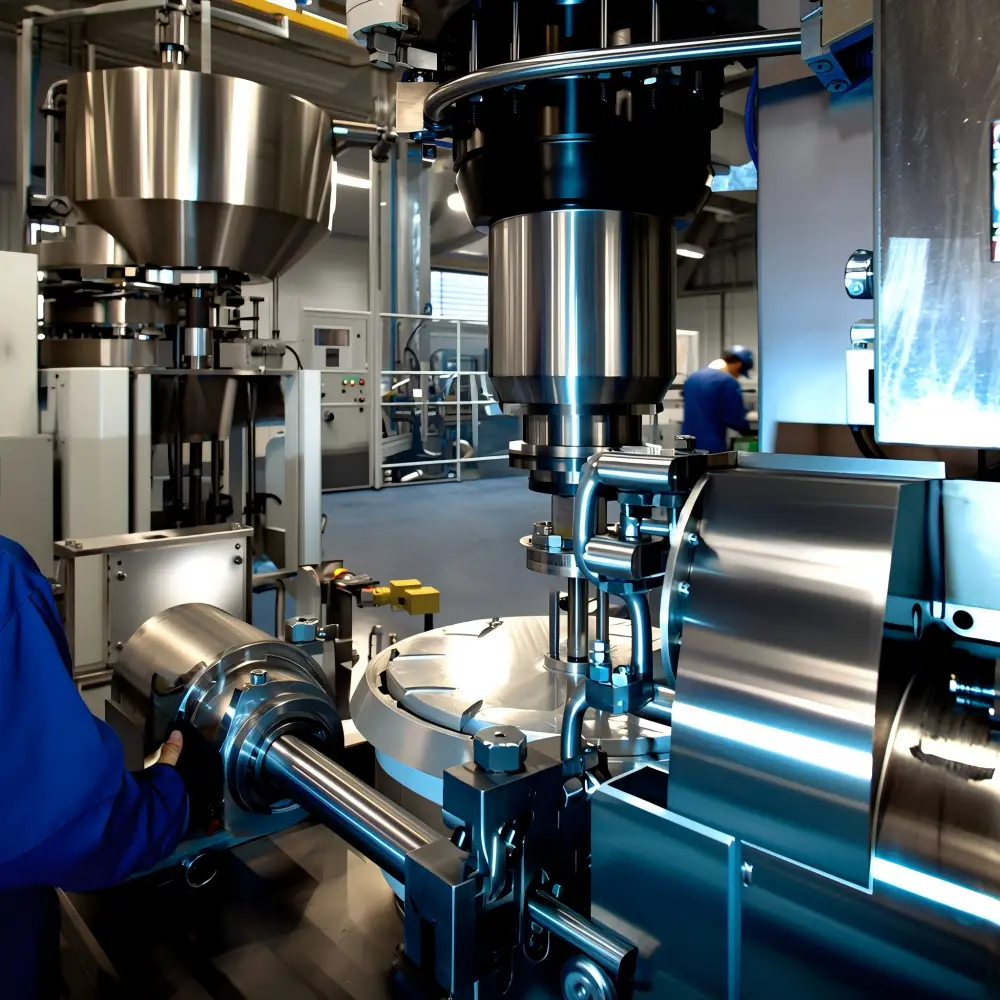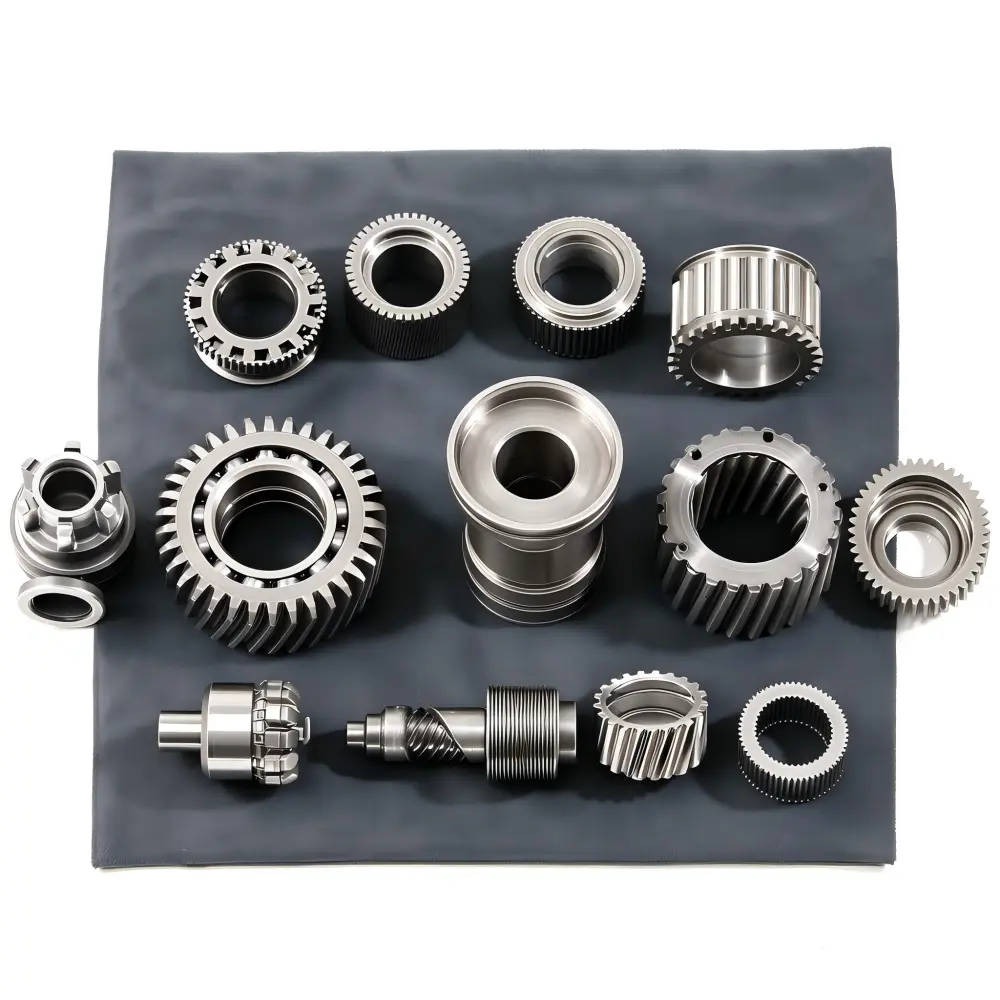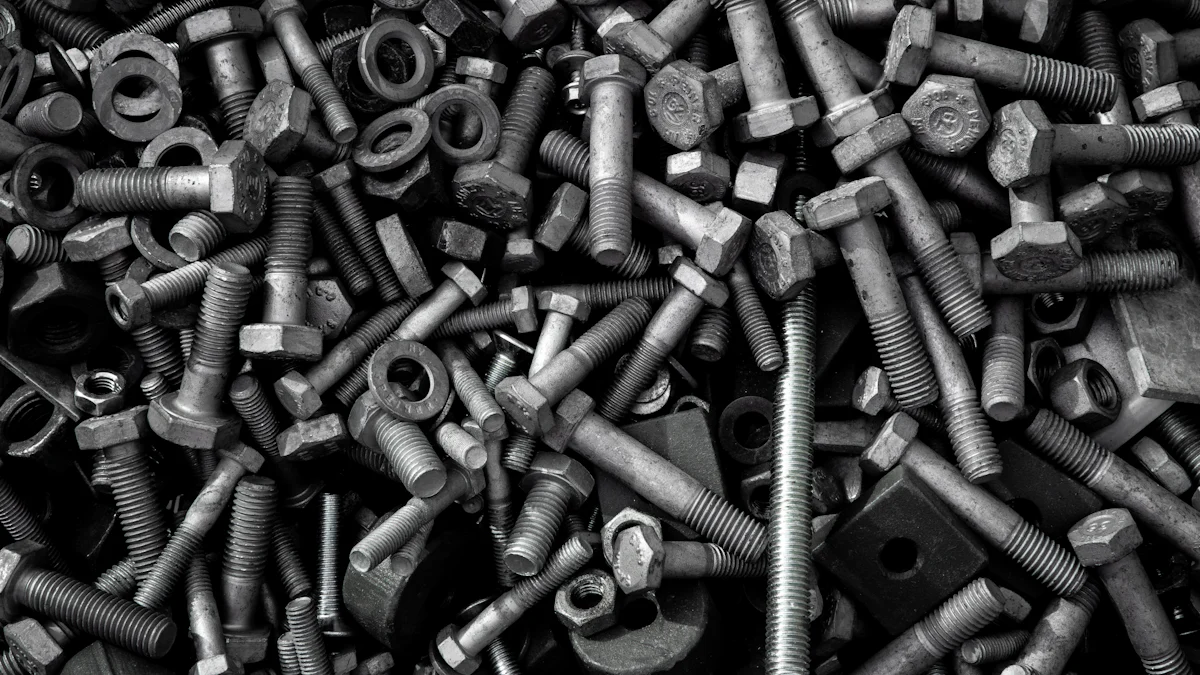
Brass Precision Castings stand out as a remarkable solution for precision casting due to their unique properties. The malleability of brass allows you to create intricate designs with ease, while its natural corrosion resistance ensures durability in challenging environments. The dimensional stability of brass guarantees precise and reliable components for various applications. Additionally, brass precision castings offer exceptional versatility, making them suitable for industries ranging from automotive to decorative arts. Their cost-effectiveness and aesthetic appeal further enhance their value, providing you with a material that combines functionality and beauty seamlessly.
Key Takeaways
-
Brass precision castings are highly malleable, allowing for intricate designs and reducing production time.
-
The natural corrosion resistance of brass ensures durability, making it ideal for applications in harsh environments.
-
Brass offers excellent dimensional stability, guaranteeing precise components that meet stringent industry standards.
-
With outstanding machinability, brass allows for efficient production and minimal material waste, enhancing cost-effectiveness.
-
Brass's superior thermal and electrical conductivity makes it essential for components in automotive, plumbing, and electrical industries.
-
The aesthetic appeal of brass adds value to decorative applications, combining functionality with beauty.
-
Brass is highly recyclable, supporting sustainable manufacturing practices and reducing environmental impact.
Key Properties of Brass for Precision Casting
High Malleability and Workability
Brass stands out for its exceptional malleability, allowing you to shape it into intricate and complex designs with ease. This property makes brass precision castings ideal for components that demand detailed craftsmanship. You can bend, mold, or form brass without compromising its structural integrity, which is why it is widely used in industries requiring precision. The ability to work with brass efficiently reduces production time and ensures consistent quality. Its adaptability also supports advanced processes like brass CNC machining, enabling you to achieve high levels of accuracy and detail.
Corrosion Resistance
Brass offers remarkable resistance to corrosion, making it a reliable choice for applications exposed to harsh environments. Whether you need components for marine equipment or plumbing systems, brass alloys resist the damaging effects of moisture, chemicals, and other corrosive elements. This durability ensures that your brass precision castings maintain their functionality and appearance over time. By choosing brass, you invest in materials that withstand wear and tear, reducing the need for frequent replacements and maintenance.
Dimensional Accuracy and Stability
The dimensional stability of brass ensures that your castings meet precise specifications without distortion. This property is crucial for industries like automotive and electrical manufacturing, where accuracy directly impacts performance. Brass retains its shape and size even under varying temperatures and pressures, providing you with reliable components for critical applications. The precision achieved through brass CNC machining further enhances this stability, allowing you to produce parts that meet stringent industry standards. With brass, you can trust that your designs will translate seamlessly into high-quality finished products.
Excellent Machinability
Brass offers outstanding machinability, making it a preferred material for precision Casting Processes. You can easily shape and modify brass to meet specific design requirements without compromising its structural integrity. This property allows for faster production cycles and reduces the wear on cutting tools, which helps you save time and resources during manufacturing.
The smooth surface finish achieved with brass ensures that your components require minimal post-processing. Processes like brass CNC machining further enhance the precision and efficiency of creating intricate designs. Whether you need small, detailed parts or larger components, brass adapts seamlessly to your machining needs. Its ability to retain strength after forming makes it ideal for applications in industries such as marine, construction, and agriculture.
Brass alloys, particularly leaded brasses, are known for their superior mechanical properties and ease of machining. These qualities make them suitable for producing high-performance parts that meet stringent industry standards. By choosing brass, you ensure that your precision castings deliver both reliability and cost-effectiveness.
Thermal and Electrical Conductivity
Brass exhibits excellent thermal and electrical conductivity, which makes it an invaluable material for precision casting in specialized applications. You can rely on brass to efficiently conduct heat and electricity, ensuring optimal performance in components like electrical connectors, heat exchangers, and plumbing fixtures. This property is especially beneficial in industries where managing temperature and electrical flow is critical.
The high conductivity of brass allows you to create components that perform consistently under demanding conditions. For example, brass precision castings are widely used in electrical systems due to their ability to handle high currents without overheating. Similarly, in plumbing systems, brass ensures efficient heat transfer, making it ideal for fittings and valves.
Brass CNC machining plays a vital role in achieving the precise dimensions required for these applications. The combination of machinability and conductivity ensures that your components meet exact specifications while maintaining excellent performance. With brass, you gain a material that not only meets functional demands but also enhances the efficiency of your designs.
Advantages of Brass Over Other Materials
Cost-Effectiveness
Brass offers a cost-effective solution for brass precision castings. Its availability and ease of production make it an economical choice compared to other metals like stainless steel or bronze.
Superior Aesthetic Qualities
Brass stands out for its natural beauty and timeless appeal. Its golden hue adds a touch of elegance to any design, making it a preferred material for decorative and architectural applications. You can polish brass to achieve a brilliant shine or leave it untreated for a rustic, antique look. Unlike other metals, brass maintains its aesthetic qualities over time due to its corrosion resistance. This makes it ideal for visible components in industries like interior design and musical instruments. By selecting brass, you combine functionality with visual appeal, creating products that are both practical and attractive.
Versatility in Design
The adaptability of brass alloys supports advanced manufacturing techniques like brass CNC machining, ensuring accuracy and consistency in every piece.
Wear Resistance and Durability
Brass excels in wear resistance, making it a reliable choice for components subjected to constant friction or heavy use. Its ability to withstand abrasion ensures that your brass precision castings maintain their functionality over time. This durability reduces the need for frequent replacements, saving you both time and resources. Whether you require parts for machinery, plumbing systems, or decorative applications, brass delivers consistent performance under demanding conditions.
The high strength of brass after forming further enhances its durability. You can rely on brass to retain its structural integrity even in challenging environments. For example, brass alloys used in industrial applications resist deformation and maintain their shape despite exposure to mechanical stress. This property makes brass ideal for producing components like gears, bearings, and valves, where long-term reliability is essential.
Brass alloys, particularly those containing lead, offer additional benefits for machinability and wear resistance. However, advancements in lead-free brass alloys have shown that heat treatment can optimize their performance without compromising environmental safety. By modifying the microstructure, manufacturers achieve better machinability and improved resistance to wear. This innovation ensures that you can enjoy the advantages of using brass while adhering to modern sustainability standards.
The natural corrosion resistance of brass also contributes to its durability. Components made from brass resist the damaging effects of moisture and chemicals, which often lead to material degradation. This resistance ensures that your brass precision castings remain functional and visually appealing, even in harsh conditions. From marine equipment to architectural fixtures, brass proves its worth as a durable and dependable material.
By choosing brass for your precision casting needs, you gain a material that combines wear resistance, strength, and longevity. These qualities make brass a preferred option across industries, offering you a solution that balances performance and cost-effectiveness.
Applications of Brass Precision Castings
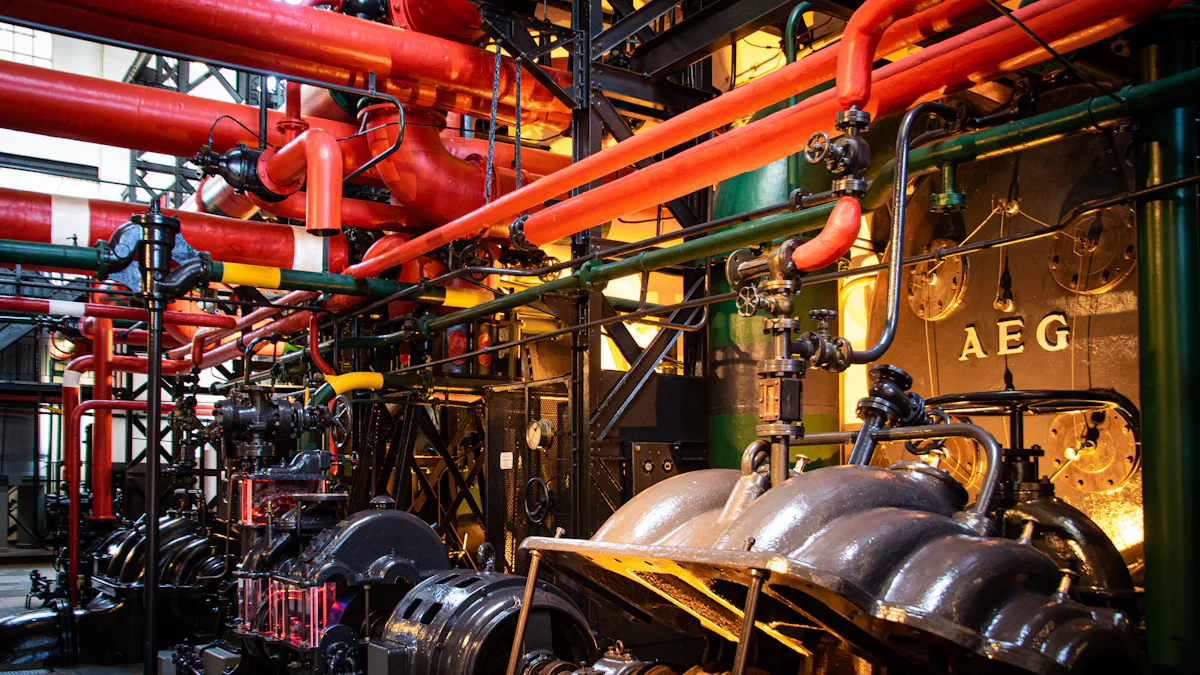
Automotive Industry
Brass plays a vital role in the automotive industry. You can find brass precision castings in components like radiator cores, fuel connectors, and valve fittings.
Additionally, brass CNC machining enables the production of precise and durable parts, ensuring compatibility with advanced automotive technologies.
Plumbing and Hardware
Brass has long been a preferred material in plumbing and hardware applications. Its natural resistance to corrosion makes it perfect for water systems, where exposure to moisture is constant. You can rely on brass precision castings for faucets, valves, and pipe fittings that maintain their integrity over time. Unlike materials like aluminum, brass resists degradation, ensuring consistent performance in plumbing systems.
The malleability of brass allows for the creation of complex shapes, making it suitable for decorative hardware such as door handles and cabinet knobs. Brass CNC machining ensures these components meet exact design specifications while maintaining a smooth finish. The durability of brass also reduces the need for frequent replacements, saving you time and money in maintenance. Whether for functional or aesthetic purposes, brass delivers unmatched reliability in plumbing and hardware.
Electrical Components
Brass precision castings are indispensable in the electrical industry. The excellent electrical conductivity of brass ensures efficient energy transfer, making it ideal for connectors, terminals, and switches. You can depend on brass to handle high currents without overheating, which is crucial for maintaining the safety and efficiency of electrical systems.
The machinability of brass allows for the production of small, intricate components required in modern electronics. Brass CNC machining ensures these parts meet stringent tolerances, providing reliable performance in critical applications. Additionally, the corrosion resistance of brass alloys enhances the durability of electrical components, even in environments with high humidity or exposure to chemicals. By using brass, you ensure your electrical systems operate efficiently and withstand the test of time.
Musical Instruments
Brass plays a pivotal role in the creation of musical instruments, offering both functionality and aesthetic appeal. Its unique acoustic properties allow you to produce rich, warm tones that resonate beautifully. Instruments like trumpets, trombones, and saxophones rely on brass for their superior sound quality. The material's malleability enables you to craft intricate shapes and designs, ensuring each instrument meets precise specifications.
The durability of brass ensures that your instruments withstand frequent use without losing their tonal quality. Its natural resistance to corrosion makes it ideal for instruments exposed to moisture, such as those used in outdoor performances. Brass also maintains its bright, polished appearance over time, adding a visual charm to its practical benefits. By choosing brass for musical instruments, you gain a material that enhances both performance and longevity.
Decorative and Architectural Uses
Brass stands out as a preferred material for decorative and architectural applications. Its golden hue adds elegance and sophistication to any design. You can use brass for creating intricate details in furniture, lighting fixtures, and ornamental pieces. Its malleability allows you to mold it into complex shapes, making it suitable for both modern and traditional styles.
In architectural projects, brass offers durability and resistance to environmental factors. You can rely on it for components like railings, door handles, and window frames that maintain their integrity over time. Unlike other materials, brass resists tarnishing and corrosion, ensuring that your designs retain their aesthetic appeal. Its versatility also supports various finishes, from polished and shiny to matte and antique looks.
Brass combines beauty with practicality, making it an excellent choice for enhancing the visual and functional aspects of your spaces. Whether you're designing a luxurious interior or crafting a timeless decorative piece, brass provides the flexibility and reliability you need.
Environmental and Sustainability Benefits of Bras
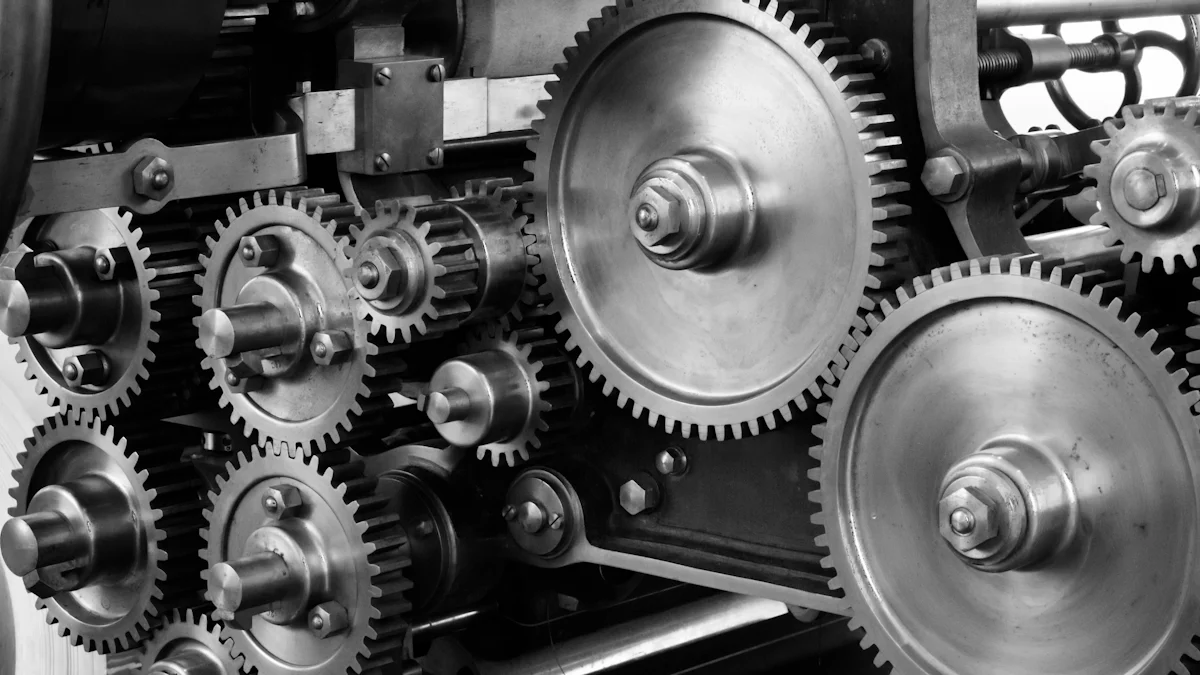
Recyclability
Brass offers exceptional recyclability, making it a sustainable choice for precision casting. You can recycle brass repeatedly without losing its original properties. This process reduces the demand for raw materials, conserving natural resources like copper and zinc. By using recycled brass, you contribute to a circular economy where materials are reused instead of discarded. Recycling brass also minimizes environmental pollution, as it prevents waste from ending up in landfills. When you choose brass, you support eco-friendly practices that benefit both industries and the planet.
Energy Efficiency in Production
Producing brass requires less energy compared to other metals like aluminum or steel. The lower melting point of brass reduces the energy needed during the casting process. This efficiency helps manufacturers lower their carbon footprint while maintaining high production standards. You can rely on brass to deliver quality components without excessive energy consumption. Additionally, the energy savings in brass production translate to cost savings, making it an economical and environmentally responsible material. Choosing brass precision castings allows you to align your manufacturing needs with sustainability goals.
Reduced Waste in Manufacturing
Brass minimizes waste during manufacturing, thanks to its excellent machinability and adaptability. You can shape brass into precise components with minimal material loss. Processes like CNC machining ensure that every piece of brass is utilized efficiently, reducing scrap and excess. The durability of brass also means fewer defective parts, further cutting down on waste. By selecting brass, you optimize your production process and reduce the environmental impact of your operations. This commitment to waste reduction makes brass a smart choice for industries prioritizing sustainability.
Challenges and Considerations in Brass Precision Casting
Material Limitations
Brass, while versatile, has certain material limitations you should consider during precision casting. Its melting point, though lower than many metals, requires careful temperature control to avoid defects in the final product. Overheating can lead to oxidation, which may compromise the quality of your castings. Additionally, brass alloys may vary in their composition, affecting properties like strength, corrosion resistance, and machinability. Selecting the right alloy for your specific application is crucial to achieving optimal results. For example, some brass alloys excel in electrical conductivity, while others are better suited for wear resistance. Understanding these variations helps you make informed decisions and ensures your components meet performance expectations.
Design and Manufacturing Constraints
Brass precision casting offers remarkable flexibility, but certain design and manufacturing constraints can arise. Complex shapes and intricate details are achievable, yet they demand precise mold designs and advanced casting techniques. Thin-walled sections or sharp corners may pose challenges, as brass can shrink during cooling, leading to dimensional inaccuracies. You must account for this shrinkage during the design phase to maintain the integrity of your components.
The casting process also requires high-quality molds to prevent defects like porosity or surface irregularities. Investing in well-crafted molds ensures consistent results and reduces the need for post-processing. Additionally, the machinability of brass, while excellent, depends on the alloy used. Some alloys may require specialized tools or techniques to achieve the desired finish. By addressing these constraints early in the process, you can streamline production and enhance the quality of your brass castings.
Handling and Contamination Risks
Proper handling of brass during precision casting is essential to avoid contamination and ensure high-quality results. Brass is susceptible to contamination from impurities like lead or other metals, which can alter its properties and compromise its performance. You should implement strict quality control measures to maintain the purity of your brass alloys. This includes using clean equipment, monitoring the casting environment, and inspecting raw materials for contaminants.
Storage and transportation also play a role in preserving the quality of brass. Exposure to moisture or corrosive substances can lead to surface oxidation, affecting the appearance and functionality of your components. Storing brass in a controlled environment minimizes these risks and ensures your materials remain in optimal condition. Additionally, proper training for your team on handling procedures reduces the likelihood of errors during production. By prioritizing cleanliness and care, you can maximize the durability and reliability of your brass precision castings.
Why Brass Precision Castings Continue to Dominate
Meeting Industry Standards
Brass precision castings consistently meet the rigorous standards required across industries. You can rely on brass to deliver components that align with strict specifications, ensuring reliability and performance. Industries such as automotive, plumbing, and electrical manufacturing demand materials that maintain consistency in quality. Brass excels in this regard due to its dimensional stability and ability to retain its properties under various conditions.
The use of advanced techniques, including brass CNC machining, enhances the precision of brass components. This process ensures that every part meets exact tolerances, which is critical for applications requiring high precision and accuracy. By choosing brass, you gain access to a material that not only meets but often exceeds industry benchmarks. This reliability cements its position as a dominant choice in modern manufacturing.
Adaptability to Modern Manufacturing Needs
Brass adapts seamlessly to the evolving demands of modern manufacturing. Its malleability allows you to create intricate designs, while its machinability supports efficient production processes. Techniques like brass CNC machining enable manufacturers to produce complex components with minimal waste, aligning with the industry's push for sustainability and cost-effectiveness.
Brass alloys further expand the versatility of this material. You can select specific alloys tailored to your application, whether you need enhanced corrosion resistance, improved wear resistance, or superior conductivity. This adaptability makes brass suitable for a wide range of industries, from decorative arts to high-tech electronics. As manufacturing technologies advance, brass continues to prove its relevance by integrating effortlessly into innovative processes.
Long-Term Reliability and Performance
Brass delivers unmatched long-term reliability, making it a preferred material for critical applications. Its natural corrosion resistance ensures that components maintain their functionality even in harsh environments. You can trust brass to withstand wear and tear, reducing the need for frequent replacements and lowering maintenance costs.
The durability of brass precision castings stems from their ability to retain structural integrity over time. Whether used in automotive systems, plumbing fixtures, or electrical components, brass provides consistent performance. Its high precision and accuracy, achieved through advanced machining techniques, further enhance its dependability. By investing in brass, you secure components that offer both immediate and lasting value.
Brass's ability to meet industry standards, adapt to modern needs, and deliver long-term performance solidifies its dominance in precision casting. You benefit from a material that combines functionality, versatility, and sustainability, ensuring success in your manufacturing endeavors.
Brass continues to prove itself as the ideal material for precision casting. Its unique properties, such as malleability and corrosion resistance, allow you to create intricate designs that endure harsh environments. The machinability of brass ensures efficient production, saving both time and resources. Its cost-effectiveness and aesthetic appeal make it a versatile choice across industries, from automotive to decorative arts. As sustainability becomes a priority, brass's recyclability and energy-efficient production processes align with modern environmental goals. By choosing brass, you invest in a material that balances performance, durability, and eco-consciousness.
FAQ
What makes brass a preferred material for precision casting?
Brass offers a unique combination of properties that make it ideal for precision casting. Its high malleability allows you to create intricate designs with ease. The natural corrosion resistance ensures durability, even in harsh environments. Brass also provides excellent machinability, enabling efficient production processes. These qualities, combined with its cost-effectiveness and aesthetic appeal, make brass a top choice for various industries.
How does brass compare to other metals in terms of cost?
Brass is more cost-effective than many other metals, such as stainless steel or bronze. Its availability and ease of production contribute to its affordability. Additionally, the machinability of brass reduces manufacturing time and material waste, further lowering costs. By choosing brass, you can achieve high-quality results without exceeding your budget.
Can brass be recycled?
Yes, brass is highly recyclable. You can recycle it repeatedly without losing its original properties. This makes brass an environmentally friendly choice for precision casting. Recycling brass reduces the demand for raw materials and minimizes waste, supporting sustainable manufacturing practices.
What industries benefit the most from brass precision castings?
Brass precision castings are widely used across multiple industries.
How does the centrifugal casting method enhance brass casting?
The centrifugal casting method, developed in the 19th century, revolutionized brass casting. By spinning the mold, this method distributes molten brass evenly, ensuring uniformity and precision. It is particularly effective for creating cylindrical shapes like pipes and tubes. This technique enhances the quality and reliability of brass components.
Is brass suitable for creating complex designs?
Yes, brass is highly versatile and can be cast into complex shapes and intricate designs. Its malleability allows you to mold it into detailed components without compromising strength. This makes brass an excellent choice for custom parts in industries like automotive, plumbing, and decorative arts.
What role does brass play in sustainability?
Brass contributes significantly to sustainability in manufacturing. Its recyclability reduces the need for raw material extraction, conserving natural resources. The energy-efficient production process of brass, due to its lower melting point, minimizes carbon emissions. By using brass, you support eco-friendly practices while maintaining high-quality standards.
How does brass perform in high-temperature environments?
Brass exhibits excellent thermal conductivity, making it suitable for high-temperature applications. It efficiently transfers heat, which is essential for components like heat exchangers and plumbing fixtures. Brass also retains its structural integrity under varying temperatures, ensuring reliable performance in demanding conditions.
What are the key considerations when working with brass in precision casting?
When working with brass, you should consider factors like alloy selection and temperature control. Different brass alloys offer varying properties, such as strength or corrosion resistance. Proper temperature management during casting prevents defects like oxidation. Additionally, using high-quality molds ensures precise and consistent results.
Why does brass continue to dominate in modern manufacturing?
Brass remains dominant due to its adaptability, reliability, and sustainability. It meets stringent industry standards while offering versatility in design and application. Its recyclability and energy-efficient production align with modern environmental goals. By choosing brass, you gain a material that balances performance, durability, and eco-consciousness, making it indispensable in today's manufacturing landscape.






